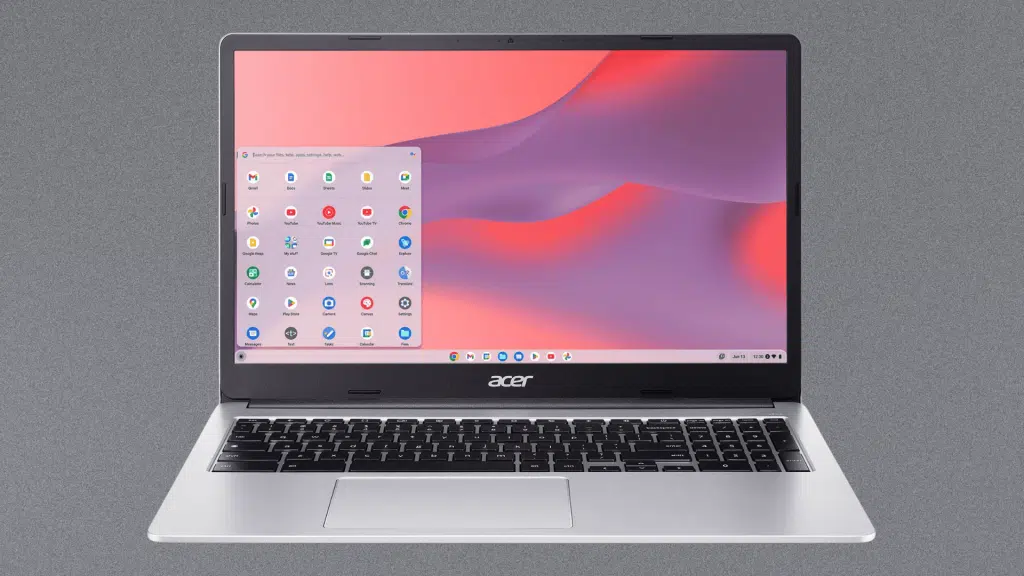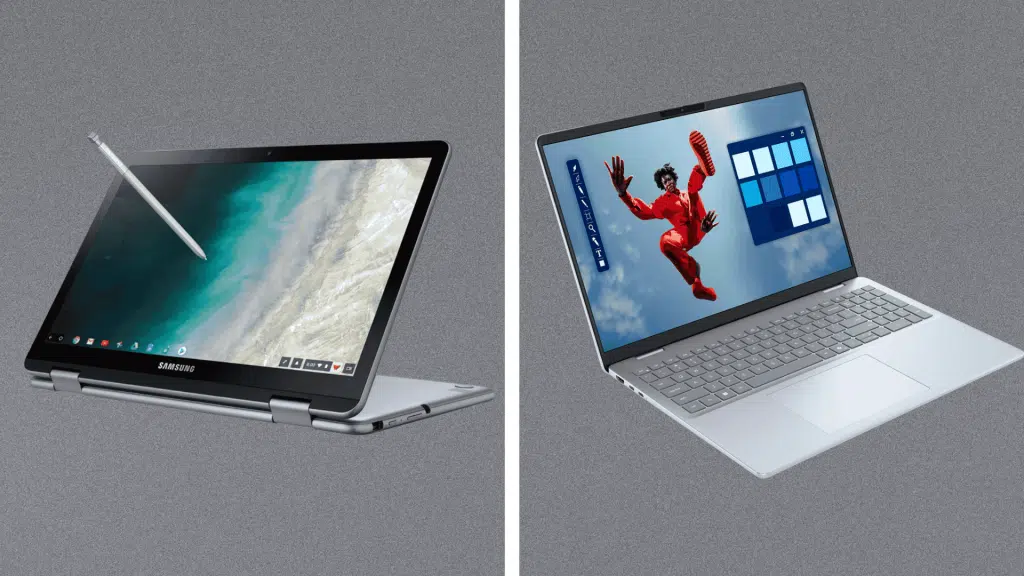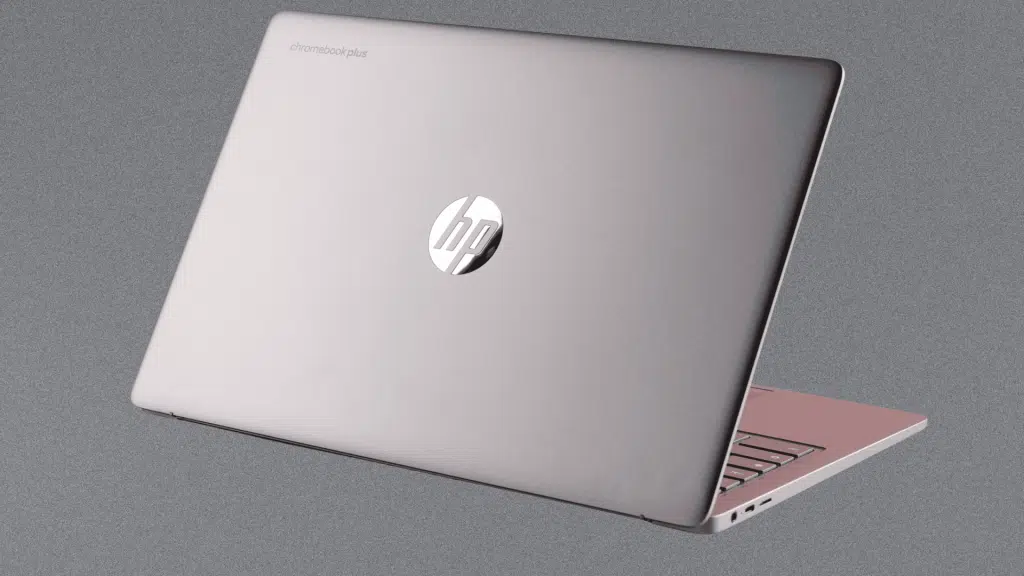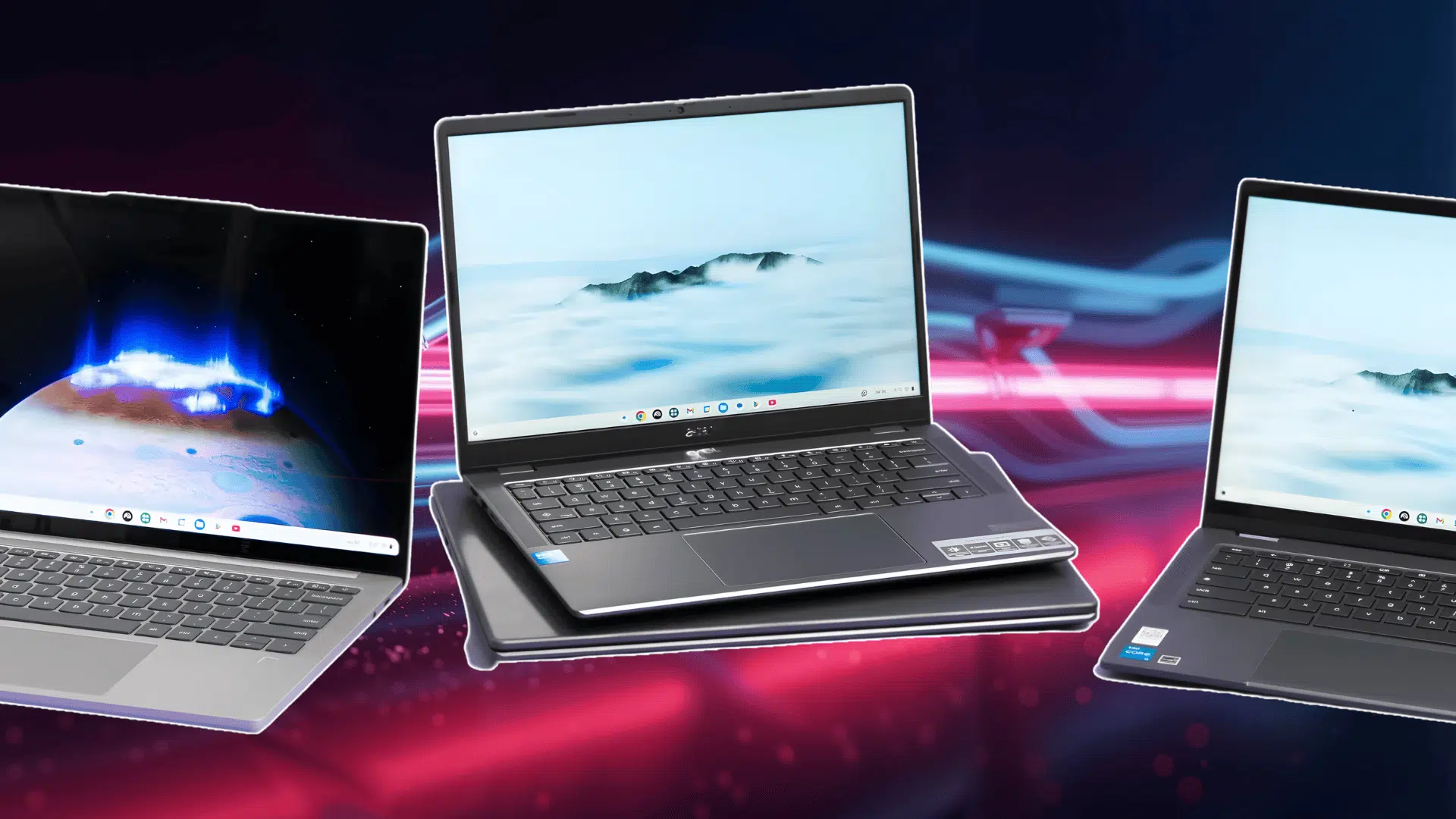If you’ve ever caught yourself thinking, “Are Chromebooks good, or just overhyped?” you’re asking the right question.
I had the same doubts before digging into what these lightweight laptops actually offer. Instead of relying on heavy software, they focus on speed, simplicity, and seamless cloud access.
But are Chromebooks actually good for real-world use, or do they just sound appealing on paper?
Today, I’ll break down what makes them stand out, where they fall short, and who they’re best suited for. By the end, you’ll know exactly whether a Chromebook fits your lifestyle and daily needs.
What Exactly is a Chromebook?
A Chromebook is essentially a laptop that runs on Chrome OS, Google’s proprietary operating system.
Instead of loading up with heavy software, it utilizes the Chrome browser and Google tools, such as Gmail, Drive, and Docs.
Most of what you do happens online, and your files are saved in the cloud instead of on the laptop itself.
Compared to Windows or macOS, a Chromebook feels lighter and faster. It starts up in seconds, updates on its own, and doesn’t need antivirus software. You won’t install big programs; you’ll use web or Android app versions instead.
Over the years, Chromebooks have gotten better, too. They now run Android and even Linux apps, which makes them a lot more capable while still keeping things simple.
Chromebook: Pros and Cons


Chromebooks have become a popular choice for students, professionals, and casual users because of their speed, simplicity, and affordability.
But like any device, they come with strengths and weaknesses that depend on how you plan to use them.
Pros of Using a Chromebook
- Affordable pricing: Entry-level models often start under $300, offering smooth performance for browsing, streaming, and schoolwork without breaking the budget.
- Fast boot times: Most Chromebooks start up in under 10 seconds, letting you get to work almost instantly.
- Simple to use: ChromeOS is straightforward and synced through your Google account; no complex setups or manual updates.
- Strong battery life: Many models last 10–12 hours on one charge, ideal for long days of classes or remote work.
- Automatic security updates: ChromeOS updates quietly in the background, keeping your system secure from viruses and malware.
- Cloud-based storage: Google Drive integration ensures your files stay safe, synced, and accessible from anywhere.
- Google app integration: Works seamlessly with tools like Docs, Sheets, Gmail, and Meet for productivity and collaboration.
- Lightweight and portable: Most models weigh under three pounds, making them easy to carry anywhere.
- Fast performance for daily tasks: ChromeOS runs efficiently, keeping browsing, emails, and streaming smooth and lag-free.
- Multiple user support: Each person can sign in with their own Google account, keeping data and settings separate on shared devices.
Cons and Limitations of Using a Chromebook
- Limited offline use: Many apps need an internet connection; offline editing and syncing are still restricted.
- Restricted software options: You can’t install full desktop apps like Photoshop, AutoCAD, or complete Microsoft Office suites.
- Modest hardware specs: Most models have limited RAM and storage, suitable for basic tasks but not heavy multitasking.
- Not ideal for gaming: Chromebooks lack dedicated graphics cards, limiting gameplay to simple Android or web titles.
- Limited video and photo editing: Online tools work for small projects, but can’t match full desktop software performance.
- Dependence on the cloud: A stable internet connection is essential for saving and syncing work efficiently.
- Minimal customization: ChromeOS offers fewer personalization options than Windows or Linux for advanced users.
Chromebook vs. Windows Laptop: Key Differences


| Feature | Chromebook | Windows Laptop |
|---|---|---|
| Operating System | Runs on ChromeOS, focused on web apps and Google services. | Uses Windows OS, supports a wide range of desktop programs. |
| Price Range | Very budget-friendly, with many models under $300. | Wider range, from budget to high-end options for all users. |
| Software Support | Primarily web-based or Android apps, with limited full desktop software. | Supports all major desktop software, ideal for professional work. |
| Performance | Optimized for basic tasks like browsing and streaming. | Handles light to heavy workloads, depending on specs. |
| Storage | Relies on cloud storage (Google Drive) with limited local space. | Offers larger local storage with HDD or SSD options. |
| Battery Life | Typically lasts 10–12 hours on one charge. | Battery varies; averages 6–9 hours, depending on model. |
| Security | Automatic updates and built-in malware protection. | Manual updates require antivirus software and regular maintenance. |
| Offline Use | Limited; some apps work offline but depend on syncing later. | Strong offline access; most programs run without internet. |
| Ideal User | Best for students, travelers, and casual users. | Better for professionals, gamers, and power users. |
In short, Chromebooks are great for simple, cloud-based work, while Windows laptops offer more power and flexibility. The right pick comes down to your budget and daily tasks.
Are Chromebooks Good Today?
Chromebooks today are far more advanced than the first versions. Here are the upgrades that make them faster, smarter, and more practical than ever:
Better Processors: Modern Intel, AMD, and ARM chips make Chromebooks quick and efficient. They handle multitasking, streaming, and light productivity without slowing down.
Improved Android and Linux Support: Android apps now run smoothly, and Linux support allows developers to use coding and development tools directly on ChromeOS.
AI Integration: Built-in Google AI tools, like Gemini and smart text suggestions, make writing, organizing, and researching easier.
Frequent Updates: ChromeOS updates automatically, improving performance, adding new features, and extending the life of your device with no effort required.
Why They’re More Appealing
Chromebooks have become reliable and flexible, meeting the needs of many types of users.
For hybrid users, they handle work, study, and browsing smoothly, with fast performance and easy cloud access.
In the education sector, they’re popular for being affordable, quick to set up, and fully compatible with Google Classroom and cloud tools.
Their wider use cases now include light creative work, coding, and content creation, thanks to AI tools, Android app support, and stronger hardware.
Future Outlook
Chromebooks are improving fast, and the next few years look even more promising. Google is steadily refining ChromeOS to make it smarter, faster, and more adaptable to real-world needs.
You can expect closer Android integration, which will make apps run smoother and updates arrive faster.
On-device AI processing is also on the way, allowing smart tools to work locally without depending on the cloud.
Manufacturers are exploring new designs too, from convertibles to foldable models, giving users more flexibility and portability. Plus, an expanding app ecosystem will bring web and Android versions of popular desktop tools, reducing the gap with traditional laptops.
As I see it, Chromebooks have grown beyond basic browsing machines. They’re becoming capable, dependable laptops that fit easily into modern work, study, and travel routines.
Best Chromebooks for Today
| Model | Highlights | Best For |
|---|---|---|
| Lenovo Chromebook Plus 14 | ARM processor, OLED screen, AI features, and long battery life. | Every day use, schoolwork. |
| Acer Chromebook Plus Spin 514 | Convertible design, strong performance, and battery efficiency. | Hybrid work and study. |
| ASUS Chromebook CX34 | Lightweight, durable, and bright display. | Students and travelers. |
| HP Chromebook x360 14c | Touchscreen, flexible hinge, and reliable performance. | Remote work and productivity. |
Each of these Chromebooks offers a balance of performance, portability, and reliability. No matter your routine, work, school, or travel, there’s a model built to fit your everyday needs.
Who Are Chromebooks Good For?


Chromebooks fit many users, but aren’t ideal for everyone, and you also know why Chromebooks appeal to so many. Here’s a closer look at who they actually work best for:
- Students and Teachers: Affordable, lightweight, and easy to manage. Perfect for notes, research, and Google Classroom, though most tools still need an internet connection to work properly.
- Writers and Freelancers: Great for writing, editing, and staying organized with Google Docs and Gmail. They’re distraction-free, but limited offline access can be inconvenient.
- Everyday Users: Ideal for web browsing, streaming, and social media. Chromebooks start fast, stay secure, and require little maintenance, though gaming and multitasking remain limited.
- Remote Workers: Good for video calls, email, and cloud-based tools. They’re dependable for travel work, but not powerful enough for complex multitasking or heavy apps.
- Travelers and Minimalists: Light, compact, and long-lasting on battery. Great for work or entertainment on the go, though weak Wi-Fi can limit what you can do offline.
- Developers (Linux-Enabled Models): Budget-friendly and secure for small coding projects. I’ve tried them for basic tasks, but limited hardware makes them unsuitable for demanding development
When a Chromebook Might Not Be Right for You
Chromebooks handle everyday tasks well, but they’re not made for everything. Some jobs and hobbies need more power, flexibility, or offline capability than these devices can provide.
If you’re a creative professional, you’ll quickly notice their limits. They can’t run full creative software like Photoshop or Premiere, and large media projects demand more power and storage.
Gamers will also find them lacking. Without dedicated graphics, Chromebooks are fine for casual games but not built for advanced or competitive titles.
For power users, multitasking or handling large datasets can be frustrating. Heavy software or multiple browser tabs can slow things down.
And if you often work offline, you might struggle with cloud reliance. Some apps have offline modes, but syncing and saving still depend on a stable internet connection.
Overall, Chromebooks are best for light, connected work. If your daily routine depends on specialized tools or offline productivity, a Windows or Mac laptop will serve you better.
Final Thoughts
If you’ve read this far, you probably have a clear picture of what makes Chromebooks stand out, and where they fall short.
I’ve tried to provide you with a balanced view of their real strengths and everyday limitations, so you can decide if they fit your lifestyle or work needs.
Chromebooks are a good option if you value simplicity, speed, and reliability over power-hungry features.
Ready to figure out whether a Chromebook suits you? Take a moment to compare models and see which one feels right for your routine!







